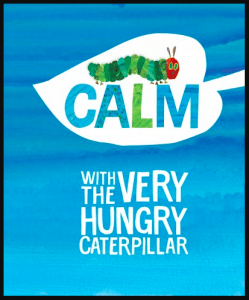Confused or irritated at school?
Which path do you follow?
EVENT → REACT → ANGER
Benefit: It is much quicker.
Cost: It is much harder on your health.
or…
EVENT → NOTICE PATTERNS → MAKE CONNECTIONS → ANALYZE → REFLECT → DECIDE → ACT → PEACE
Benefit: It is much better for your health.
Cost: It takes longer.
If you are willing to take the long path to better health, read on…
FOUR WAYS TO RESPOND TO INSTRUCTION
” If it does not make sense to me, it is difficult to learn.”
- The great gift: You have an inquisitive mind.
- Ask yourself, “Do I think my teacher is competent?”
- Ask yourself, “Can I do what is expected and trust that it will make sense to me later?”
- Ask yourself, “Is it reasonable to expect the teacher will always teach to my personal style?”
- Ask yourself, “Am I willing to take the time to talk to my teacher after class?”
- Avoid becoming arrogant and self-centred.
“If I think you do not care about me, it is difficult to learn.”
- The great gift: You have a caring heart.
- Ask yourself, “Do I think my teacher wants me to succeed?”
- Ask yourself, “What does my teacher do or say that lets me know my success is important?”
- Ask yourself, “Is it reasonable to expect my teacher will always have time to listen to me in class?”
- Ask yourself, “Do I care about my teacher and about the other students?”
- Avoid becoming resentful and self-centred.
“If I am not sure what is expected of me, I have to test the limits until I know which ones hold.”
- The great gift: You have a dependable heart.
- Ask yourself, “What were the rules in the past?”
- Ask yourself, “What would my teacher want me to do?”
- Ask yourself, “Can I talk to my teacher after class about my concerns?”
- Ask yourself, “Can I take care of my duties without reminders or praise?”
- Avoid becoming negative and self-centred.
” I am going to do what I want, no matter what.”
- The great gift: You have an independent mind.
- Ask yourself, “What do I need to do in order to get the grade I want to earn?”
- Ask yourself, “What habits do I need to develop to make learning easier?”
- Ask yourself, “What choices can I reasonably expect in this class?”
- Ask yourself, “What is reasonable to give up in order to be part of a group?”
- Avoid becoming defiant and self-centred.
If you want to learn more about personality styles, read some books:
Nurture by Nature by Paul D. Tieger (Little, Brown and Co., 1997.
One of a Kind by Lavonne Neff (CAPT, 1988).
ANALYZING ANGER AND FEAR
When people become angry, stop and think.
- Ask yourself, “Are they angry with me or with others around me?”
- Ask yourself, “What are their underlying fears?”
When students are irritated with you in class, stop and think.
- Ask yourself, “Are you taking away their time to work?”
- Ask yourself, “Are you taking away items – pencils or pens – that they might need later?”
- Ask yourself, “Are you taking away their ability to concentrate?”
- Ask yourself, “Are they afraid they won’t get enough attention for themselves?”
- Ask yourself, “What do they fear?” Help, if you can.
When you are irritated with students in class, stop and think.
1. Ask yourself, “Are you afraid you won’t have enough time to get your work done?”
2. Ask yourself, “Are you afraid they will damage or not return the items they borrow?”
3. Ask yourself, “Are you afraid you won’t be able to concentrate enough on your work?”
4. Ask yourself, “Are you afraid they will get all the attention and you will be forgotten?”
5. Ask yourself, “What is frustrating you?” Then, go talk to your teachers. They want to help.
When teachers are irritated with you in class, stop and think.
- Ask yourself, “Are they afraid they won’t have enough time to finish teaching a lesson?”
- Ask yourself, “Are they afraid I will be disappointed over my poor grades and complain?”
- Ask yourself, “Are they afraid I am taking attention away from others who deserve some attention?”
- Ask yourself, “Are they afraid I will stop others from getting good grades?”
- Ask yourself, “What do they fear?” Help, if you can.
When you are irritated with your teachers, stop and think.
1. Ask yourself, “Are you afraid the work will take up too much of your time?”
2. Ask yourself, “Are you afraid that the expectations are too high for you to meet?”
3. Ask yourself, “Are you afraid the teachers dislike you and you won’t ever be able to please them?”
4. Ask yourself, “Are you afraid you might have to change some of your beliefs or habits?”
5. Ask yourself, “What do I fear?” Then, please, go talk to your teachers after school. They want to help!
FOUR WAYS TO RESPOND TO INSTRUCTION
This page may be copied for use with students if the following credit is provided:
©2012 Sophie Rosen.
Carle, Eric. Calm with the Very Hungry Caterpillar. New York: World of Eric Carle, 2019.
Feeling jumpy? Jittery? Restless? Calm – small and beautifully illustrated – provides suggestions. Recommended for listeners 3 to 12 years old.

